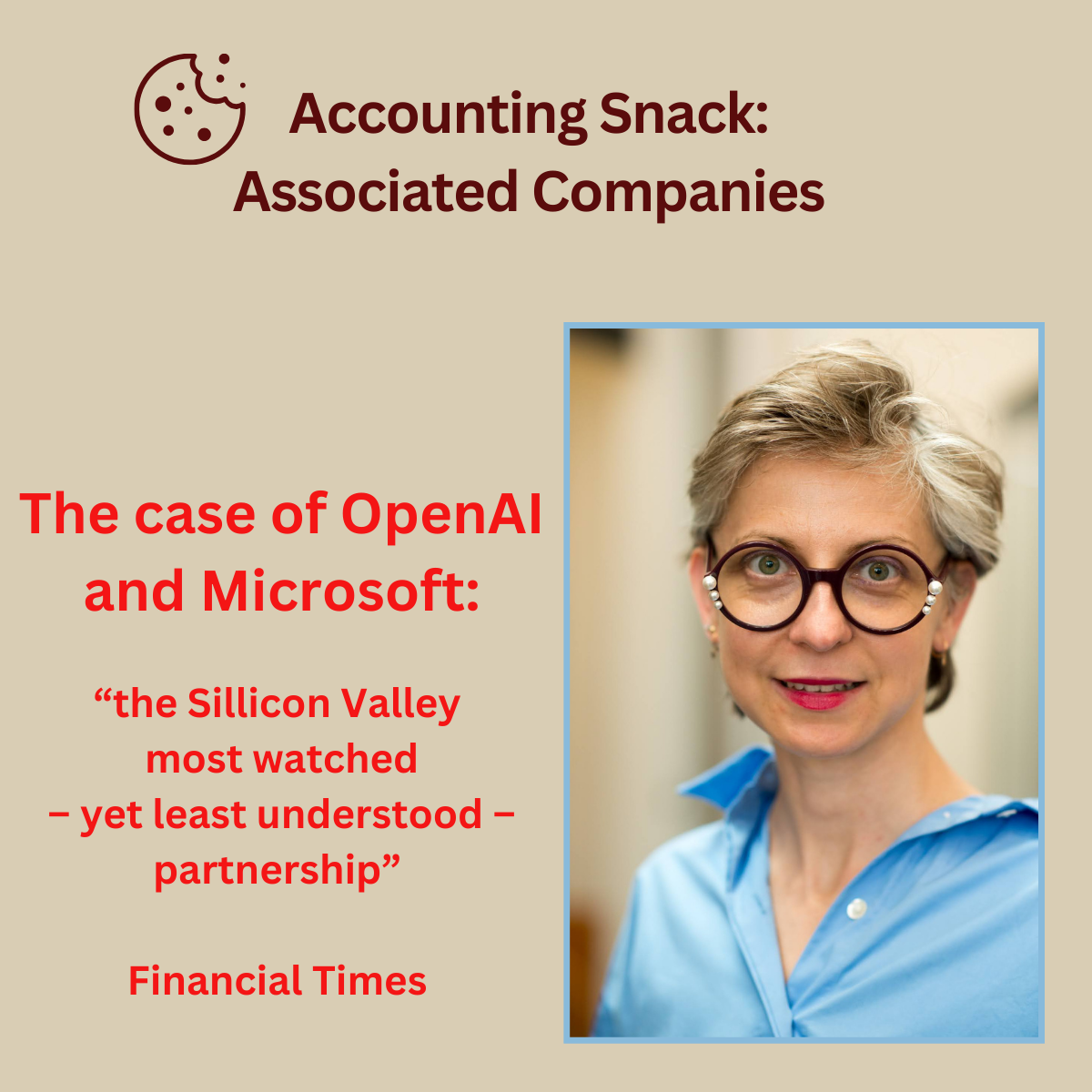The Case of OpenAI
OpenAI
OpenAI: Public Charity or an Associate of Microsoft?
Let`s have a look at the concept of significant influence according to IAS 28 Investments in Associates and Joint Ventures first.
If an entity holds, directly or indirectly (eg through subsidiaries), 20 percent or more of the voting power of an investee, it is presumed, it has significant influence, unless it can be clearly demonstrated that this is not the case.
Additional voting rights (e.g. debt or equity instruments convertible into ordinary shares) are also relevant.
Significant influence reads as the ability to influence strategical direction of an associated company (control comes into play from 50%+1 voting rights).
Criteria (at least one must apply):
✔ Have representation on the board of directors or equivalent governing body,
✔ Participate in policy-making processes, including decisions about dividends,
✔ Conclude material transactions with the associate,
✔ Interchange managerial personnel, or
✔ Provide essential technical information.
How do you account for significant influence in an associated company?
Consolidation at equity is the accounting formula here.
At acquisition: Recognize at cost and hold at carrying (book) value.
Afterwards: adjust by your share of profit (+) or loss (-) in associate with double entry in your statement of profit and loss (if you want to learn more, please do comment below).
The real-life bit(e):
OpenAI Global, LLC is a capped-profit entity (100x of the investment value), owned by the OpenAI, Inc. Open AI, Inc. is a non-profit organisation, exempt from the US federal income tax. OpenAI, Inc. is a Public Charity.
Is this structure reasonable?
Yes. As long as OpenAI remains committed to its mission “to develop safe and beneficial artificial general intelligence (AGI) that outperforms humans at economically valuable work and will benefit all humanity.”**
⁉ Controversy:
Microsoft holds an economic interest in OpenAI Global, LLC, claiming it “minor” and acting as “non-voting board observer with no control.” ** Actual % share is not disclosed by either party.
Some facts, however, might point to a different conclusion:
Since 2019, Microsoft` has invested over $13 billion into Open AI.
Microsoft is the sole provider of cloud for OpenAI and relies heavily on AGI in its future developments.
Looking at the criteria above, it might be argued that Microsoft has significant influence verging on control.
In this regard, The Federal Trading Commission (FTC) and UK market authority are investigating possible breach of merger regulations.
Sources:
- Financial Times: How Microsoft’s multibillion-dollar alliance with OpenAI really works ** OpenAI | About & Our structure
